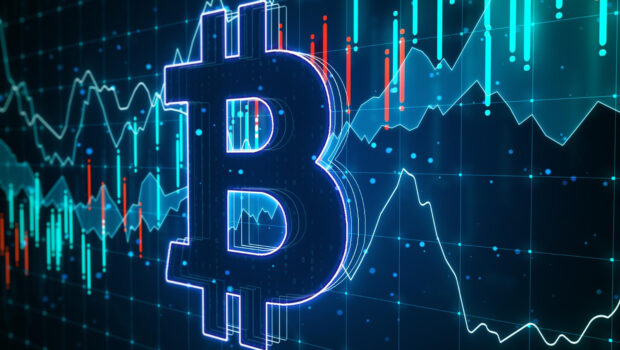Bitcoin’s Achilles’ Heel: Lack of Consumer Protection
Bitcoin, despite its potential and growing popularity, has a significant shortcoming – the lack of consumer protection. This digital currency operates in a decentralized framework, absent a central authority or government backing. Consequently, if a user loses access to their Bitcoin wallet or falls victim to a scam, there is virtually no recourse for them to recover their lost funds.
Furthermore, Bitcoin transactions are irreversible, unlike traditional banking and credit card processes. Once a Bitcoin transfer has been validated and added to the blockchain, it can’t be undone. This characteristic, while it contributes to the security of transactions against fraud, also means that erroneous transactions cannot be corrected. Go to Immediate Evex AI and make an account there.
Additionally, the anonymity provided by Bitcoin, though attractive for privacy reasons, can also be a liability in relation to consumer protection. It could potentially facilitate fraudulent activities and scams, as the identities of the parties involved in a transaction are masked. Given these limitations, it becomes imperative for consumers to exercise extreme caution when dealing with Bitcoin and other similar cryptocurrencies.
Can the risk of a lack of fungibility impact Bitcoin’s ability to function as a currency?
Fungibility, the ability of individual units of a good or a commodity to be mutually substituted, is a fundamental characteristic of any currency. In this respect, Bitcoin’s design inherently supports fungibility; every Bitcoin is identical to every other Bitcoin, much like how one dollar bill is indistinguishable from another. However, the public ledger nature of Bitcoin’s blockchain imposes a potential challenge to its fungibility.
Every Bitcoin transaction is immutable and is permanently recorded on the blockchain. This transparency, although a cornerstone for security and trust, has a side effect. Bitcoins associated with any illicit activities can be identified and potentially blacklisted by exchanges or wallets. If a significant number of Bitcoins were to be blacklisted, it could lead to a situation where not all Bitcoins are accepted freely, threatening the fungibility of the entire Bitcoin network.
However, it’s important to note that such a situation is largely theoretical at this point and would require significant changes in how transactions are currently handled. The strong consensus protocol upon which Bitcoin is built would ensure that any such changes would be agreed upon by a majority, maintaining the democratic spirit of the Bitcoin network. Nonetheless, it serves as a reminder of the potential risks associated with digital currencies and underlines the need for users to be cautious and informed.
How does the risk of a massive solar flare or electromagnetic pulse impact digital assets like Bitcoin?
A massive solar flare or an electromagnetic pulse (EMP) indeed poses potential risks to digital assets like Bitcoin. Solar flares, or coronal mass ejections (CMEs), can disrupt the earth’s magnetic field, thereby causing significant damage to electronic systems and data storage mechanisms. This could potentially render digital wallets and storage devices useless, leading to irreversible loss of digital assets.
Furthermore, an EMP, whether natural or man-made, could have a similar catastrophic impact. If a powerful EMP were to occur, it could potentially wipe out the global electrical grid, causing widespread and prolonged power outages. This would disrupt the functioning of Bitcoin mining operations and transactions, as they heavily rely on continuous power supply. Moreover, the lack of electricity would hinder access to digital wallets and online exchanges, making it practically impossible for individuals to use or trade their Bitcoin.
However, it’s essential to note that the Bitcoin network is built to be resilient. Its decentralized nature ensures that data is not stored in one place but distributed across the network. Even in the event of a massive solar flare or EMP, some nodes, especially those that are geographically isolated or specifically shielded against such events, would survive, allowing the Bitcoin network to rebuild and recover. This underscores the importance of decentralization in providing robustness against various forms of risks, including natural disasters and potential technological threats.
Final words
Despite the myriad of potential risks outlined above, it’s important to remember the benefits that Bitcoin and other cryptocurrencies bring to the table. They offer a unique combination of decentralization, privacy, and security, which traditional financial systems often struggle to provide. However, with these advantages come responsibilities. It becomes incumbent on users to educate themselves about the risks associated with digital currencies and to take appropriate protective measures.
For instance, diversifying one’s investment portfolio can mitigate some of the risks associated with Bitcoin. Investing solely in Bitcoin can expose investors to significant financial loss in the event of a catastrophic event like a solar flare or EMP. It’s always wise to spread investments across different asset classes, including traditional ones like equities, bonds, and real estate, in addition to Bitcoin and other digital assets.
In conclusion, Bitcoin, like any other financial asset, is not without its risks. However, these can be managed with proper knowledge, due diligence, and responsible behavior. As the world continues to evolve towards digitalization, it’s likely that digital currencies like Bitcoin will play a significant role in the future of finance. Encompassing this change requires understanding not just the potential rewards, but also the potential risks that come with it.
Cover Image by Freepik











![Discontinued Cars [Infographic]](https://technofaq.org/wp-content/uploads/2017/10/discontinued-cars-150x150.jpg)




